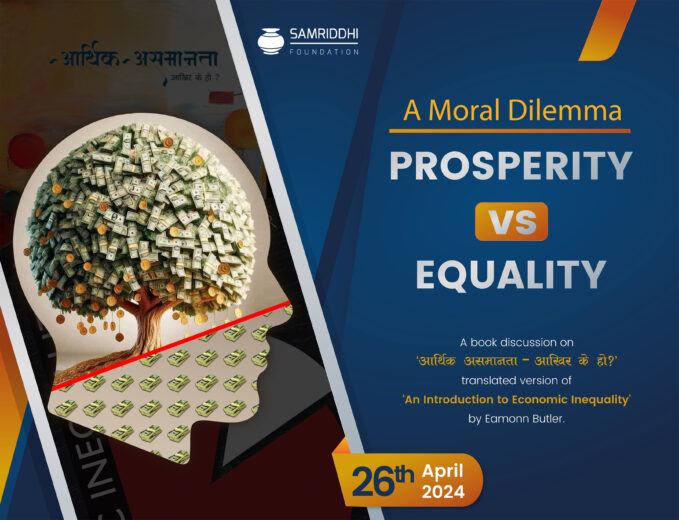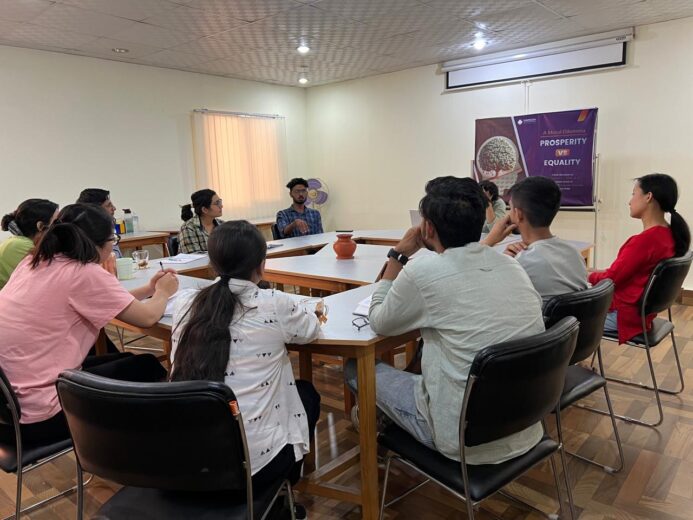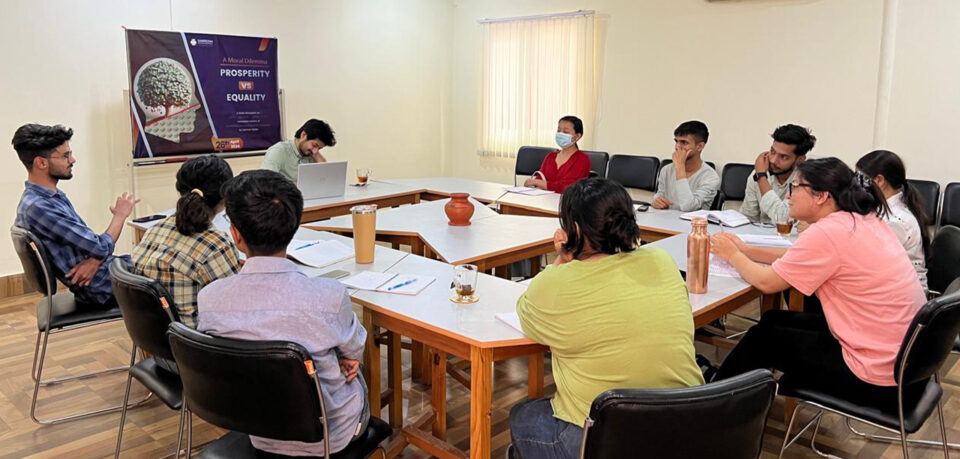The notion that the rich are getting richer at the expense of poor people has been the foundation of government intervention through redistributive policies. In this light, the Samriddhi Foundation organized a book discussion titled ‘A Moral Dilemma: Prosperity vs Equality’ on April 26, 2024. The discussion was based on the Nepali translation of a book titled ‘An Introduction to Economic Inequality’ by Eamon Butler. The discussion was attended by nine participants from different backgrounds such as law, business, economics, and the development sector.

The moderator kicked off the discussion by asking the participants to give their first impressions of the book and a question they would like to ask the author. The participants found the book quite easy to read, providing a foundational understanding of the concept of inequality. However, some participants did not like the book at all and found it biased, questioning if the author was particularly influenced by some interest group. Other participants questioned the relevance of this book in the context of Nepal, wondering if inequality would ever come to an end in the long run.
Acknowledging that the book is indeed written from a biased point of view, like any other books, the discussion then turned towards reaching an agreed definition of equality among the participants. The floor gave opinions such as having equal access to opportunities, receiving fair treatment from the government or employers, having equal rights, and even having access to resources. The discussion then focused on understanding the measurement of inequality, how it is measured, and the consensus was that it is based on income and the accumulation of wealth over time. The discussion further led to acknowledging that the participants in the room came from different wealth backgrounds but still had equal access to opportunities. This led to the conclusion that in a context where there is no clear definition of what equality and inequality actually mean, the measurement of inequality is not quite accurate and needs further investigation and refinement.
This was further countered by one of the participants who questioned the responsibility of the state, which led the moderator to ask if the state itself enforces unequal opportunities. The participants then dissected a few policies like the quota system, progressive tax, and others. Ultimately, the overall book discussion ended with one particular question: when the state itself is exclusive in nature, how can it ensure the dream of equal outcomes and deliver it to the people?


